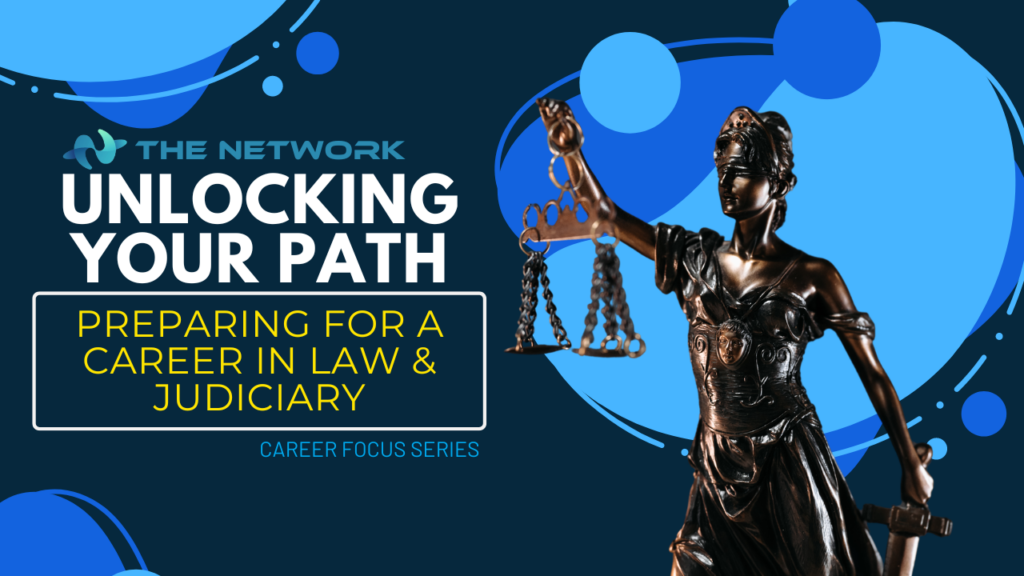Unlocking Your Path: Preparing for a Career in Law & Judiciary

Embarking on a journey in the field of Law and Judiciary is akin to entering a realm where words hold immense power, and justice serves as the guiding light. For those intrigued by the complexities of legal systems, the prospect of a career in law and judiciary is both intellectually stimulating and profoundly impactful. Whether you’re a high school student contemplating your future path, a homeschooling student seeking guidance, or a parent nurturing aspirations, understanding the nuances of this field can pave the way for a fulfilling career journey.
Highlights of a Career in Law and Judiciary
Entering the legal profession offers a plethora of rewards. Here are some highlights:
- Intellectual Challenge: Law is a dynamic field that demands critical thinking, problem-solving, and continuous learning.
- Impactful Work: Lawyers and judges play pivotal roles in shaping society, advocating for justice, and upholding the rule of law.
- Diverse Opportunities: From criminal law to corporate law, there’s a wide array of specializations to explore, catering to various interests and passions.
- Financial Stability: Successful legal professionals often enjoy lucrative salaries and opportunities for advancement.
- Global Relevance: The principles of law transcend borders, offering opportunities for international collaboration and engagement.
Top Jobs in Career in Law and Judiciary
- Lawyer: Advocating for clients’ rights and interests in legal proceedings.
- Judge/Magistrate: Presiding over court proceedings, interpreting the law, and delivering verdicts.
- Legal Consultant: Providing expert advice on legal matters to individuals or organizations.
- Legal Researcher: Conducting in-depth research on legal issues and precedents.
- Legal Aid/Pro Bono Work: Offering legal assistance to underserved communities or individuals unable to afford legal representation.
Skills and Subjects Essential for High School Students
While in high school, students can lay a solid foundation for a future in law by focusing on:
- Critical Thinking: Developing analytical skills through subjects like philosophy, debate, and literature.
- Communication: Enhancing verbal and written communication skills through language arts and public speaking courses.
- Social Sciences: Gaining insights into political science, history, and sociology to understand the context in which laws operate.
- Research Skills: Participating in projects or courses that emphasize research methodologies.
- Ethics and Morality: Exploring ethical dilemmas and moral reasoning through coursework or extracurricular activities.
Majors and Internships
Choosing a relevant major in college can further specialize one’s legal career. Common majors include political science, pre-law, criminal justice, or philosophy. Securing internships at law firms, government agencies, or nonprofit organizations can provide invaluable practical experience and networking opportunities.
Specialization Options
Upon entering the legal profession, individuals can pursue various specializations, including:
- Criminal Law: Prosecuting or defending individuals accused of criminal offenses.
- Corporate Law: Advising businesses on legal matters such as contracts, mergers, and acquisitions.
- Family Law: Handling cases related to divorce, child custody, and adoption.
- Environmental Law: Addressing legal issues concerning environmental protection and conservation.
- Intellectual Property Law: Safeguarding intellectual property rights, including patents, trademarks, and copyrights.
Importance of Lawyers and Judges
Lawyers and judges play indispensable roles in society by:
- Upholding Justice: Ensuring fairness and equity in legal proceedings.
- Protecting Rights: Advocating for individual rights and liberties.
- Interpreting Laws: Clarifying and applying the law to specific cases.
- Preserving Order: Maintaining the rule of law and societal stability.
- Promoting Accountability: Holding individuals and institutions accountable for their actions.
Sub-streams under Law and Judiciary
- Civil Law: Resolving disputes between individuals or entities concerning non-criminal matters.
- International Law: Addressing legal issues that transcend national boundaries, such as treaties and human rights.
- Administrative Law: Governing the activities of government agencies and ensuring compliance with regulations.
- Constitutional Law: Interpreting and applying the principles outlined in a country’s constitution.
- Labor Law: Regulating the relationship between employers and employees, including workplace rights and obligations.
Impact of Law and Judiciary on the World
The legal system influences various aspects of society, including:
- Social Justice: Addressing inequalities and advocating for marginalized communities.
- Economic Stability: Enforcing contracts and protecting property rights to facilitate economic growth.
- Political Order: Upholding democratic principles and ensuring the separation of powers.
- Global Governance: Facilitating cooperation and resolving disputes between nations.
- Cultural Norms: Reflecting and shaping societal values through legal frameworks.
Guidance for Parents
Parents can support their children’s aspirations in law by:
- Encouraging Exploration: Exposing children to diverse career options and encouraging curiosity about the legal profession.
- Providing Resources: Offering access to books, online courses, or mentorship programs related to law and judiciary.
- Fostering Critical Thinking: Engaging in discussions about current events, ethical dilemmas, and legal principles.
- Supporting Extracurricular Activities: Encouraging participation in debate clubs, mock trial competitions, or community service projects.
- Emphasizing Resilience: Instilling perseverance and resilience in the face of challenges, a vital trait for success in the legal field.
School or Homeschool Learning Ideas
- Mock Trial: Organize a mock trial where students take on roles as lawyers, witnesses, and judges to understand courtroom dynamics.
- Legislative Simulation: Create a model legislature where students draft and debate bills, learning about the legislative process.
- Legal Research Project: Assign students a research project on a current legal issue, requiring them to analyze multiple perspectives and present their findings.
- Debate Club: Establish a debate club focused on legal topics, encouraging students to articulate and defend their viewpoints.
- Guest Speakers: Invite legal professionals to speak to students about their career paths and the importance of law in society.
What Our Children Need to Know
- Ethical Dilemmas: Present scenarios involving conflicting moral principles and discuss how legal professionals navigate such situations.
- Case Studies: Analyze landmark legal cases and their impact on society, encouraging critical thinking and legal reasoning.
- Role-Playing: Engage students in role-playing exercises where they must negotiate legal agreements or mediate disputes, honing their negotiation skills.
The Big Questions
- How does the legal system balance individual rights with societal interests?
- What role does empathy play in the practice of law?
- How do cultural differences influence legal norms and practices?
- Can technology disrupt traditional legal processes, and if so, how?
- What ethical considerations arise in the pursuit of justice?
Conclusion
Embarking on a career in law and judiciary is a journey filled with intellectual challenges, ethical dilemmas, and opportunities for profound impact. By nurturing curiosity, fostering critical thinking, and providing support, individuals can unlock their potential and contribute meaningfully to the pursuit of justice in society.





Responses